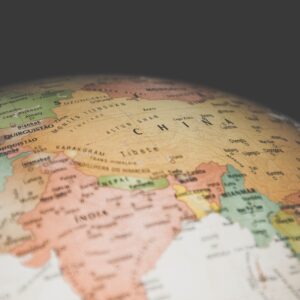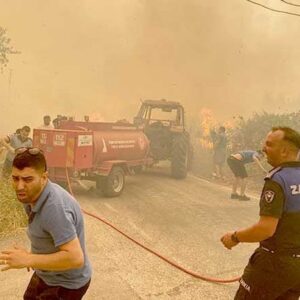
This wonderful film, just released, is based on the experiences of the director’s brother during the Bataclan attack in Paris in 2015.
Wonderfully acted, it is centred around the main character, Mia, who is a translator of Russian. It shows how she came to be in the bombed restaurant completely by chance. She had been in a different restaurant with her doctor partner, who was called away urgently. As she set off for home, she went into the bombed restaurant because it was pouring with rain.
You see her interactions with people before the shooting and explosion.
All of the attacks in 2015 had a significant impact on France. There was a feeling of a lack of safety.
This film successfully shows the effects of tragedy on different individuals, all of whom react slightly differently. They come together for weekly discussions.
Mia has totally lost all memory of the time after the attack started. She sets about trying to reconstruct what happened with the help of the others. All of them are trying to answer for themselves as to why it was they who survived and not others.
There was the daughter who was meant to be with her parents, who both died, but was with her girlfriend. The wife, who was not at her husband’s birthday party, could not now relate to him. Then you have the wife whose husband died, but she survived, and she accuses Mia of endangering them all.
I have not seen a film that has tried to show these effects. The changes made to people’s lives are usually dealt with in films on bombings, which usually deal with the wider picture or show people as heroes.
Mia slowly remembers and realises that an important part of her story is about a chef who hid with her.
This raises something important: the waiting and cooking staff have almost all been replaced, including this chef. They were nearly all Sans Papiers (undocumented migrants), often with false names. The owners had gotten rid of them. When Mia tracks any of them down, they are scared to talk.
So although the media makes huge propaganda about attacks, the individuals receive little help, apart from dealing with injuries or funerals.
I was with my son in Paris at the time of the Charlie Hebdo terrorist attack in 2015, in a restaurant, when everybody crowded around the TV to watch. They said not everybody was caught. We then went to get on the sleeper to Barcelona and were nervous about our fellow carriage occupant. We had not even been close to the attack.
This wonderfully acted film is well worth seeing and thinking about.
Art (53) Book Review (121) Books (114) Capitalism (65) China (80) Climate Emergency (98) Conservative Government (90) Conservative Party (45) COVID-19 (44) Economics (40) EcoSocialism (55) Elections (83) Europe (46) Fascism (56) Film (49) Film Review (68) France (70) Gaza (60) Imperialism (98) Israel (124) Italy (46) Keir Starmer (52) Labour Party (111) Long Read (42) Marxism (48) Palestine (169) pandemic (78) Protest (152) Russia (340) Solidarity (142) Statement (48) Trade Unionism (141) Ukraine (346) United States of America (132) War (368)
Latest Articles
- Chapter 1 Social Inequality and Social Struggle Throughout History I. Social inequality in contemporary capitalist society A pyramid of wealth and social power exists in all capitalist countries. In the USA, a Senate Commission has estimated that less than one per cent of American families possess 80 per cent of all shares in companies, and that 0.2 per cent of families possess more than … Read more
- From class society to communism: introductionThis introduction to Marxism is the result of numerous experiences in giving education to young militants at various times in the last 15 years. It arises out of such pedagogical needs as we have noticed, and these can vary from country to country, from milieu to milieu. This introduction in no way pretends to be … Read more
- The social cost of China’s resistance to Trump’s tariff war Trump’s tariffs bullied the whole world. Both Canada and China reacted strongly against them, most countries did not. An Dexin and Au Loong-Yu investigate.
- Fourth international Youth Camp – can you help fund it?Fund the future of revolutionary socialism! An appeal from Anti*Capitalist Resistance
- Neofascism and Climate ChangeWhat is driving neofascist movements to question, to varying degrees, the reality of climate change, or at least its connection to human behaviour?asks Gilbert achcar




